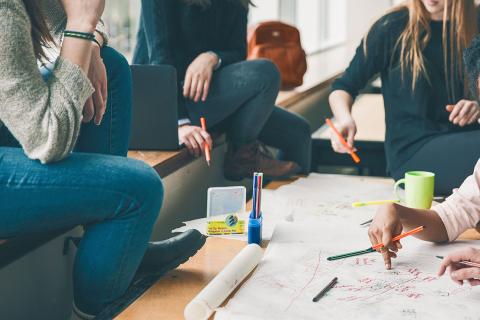Children around the world love to play and many types of activities are commonly defined as play. But what activities do children define as play and what do they think about learning through play?
Funded by the LEGO Foundation, Prof Teresa Cremin and Dr Sarah Jane Mukherjee worked with colleagues from Argentina, Denmark, Hong Kong and the US to listen to 400 five and seven-year-old children talk about their conceptions of play and its relation to learning.
Did the children think that activities such as bubbles, video games, hula-hoop, playing with numbers or dressing up were play, or both play and learning? Did the children think that while playing they are also learning? Their delightful responses revealed insights into the types of activities that children conceive as playful and offered some surprises about the children’s ideas of playing to learn and learning to play.
With














